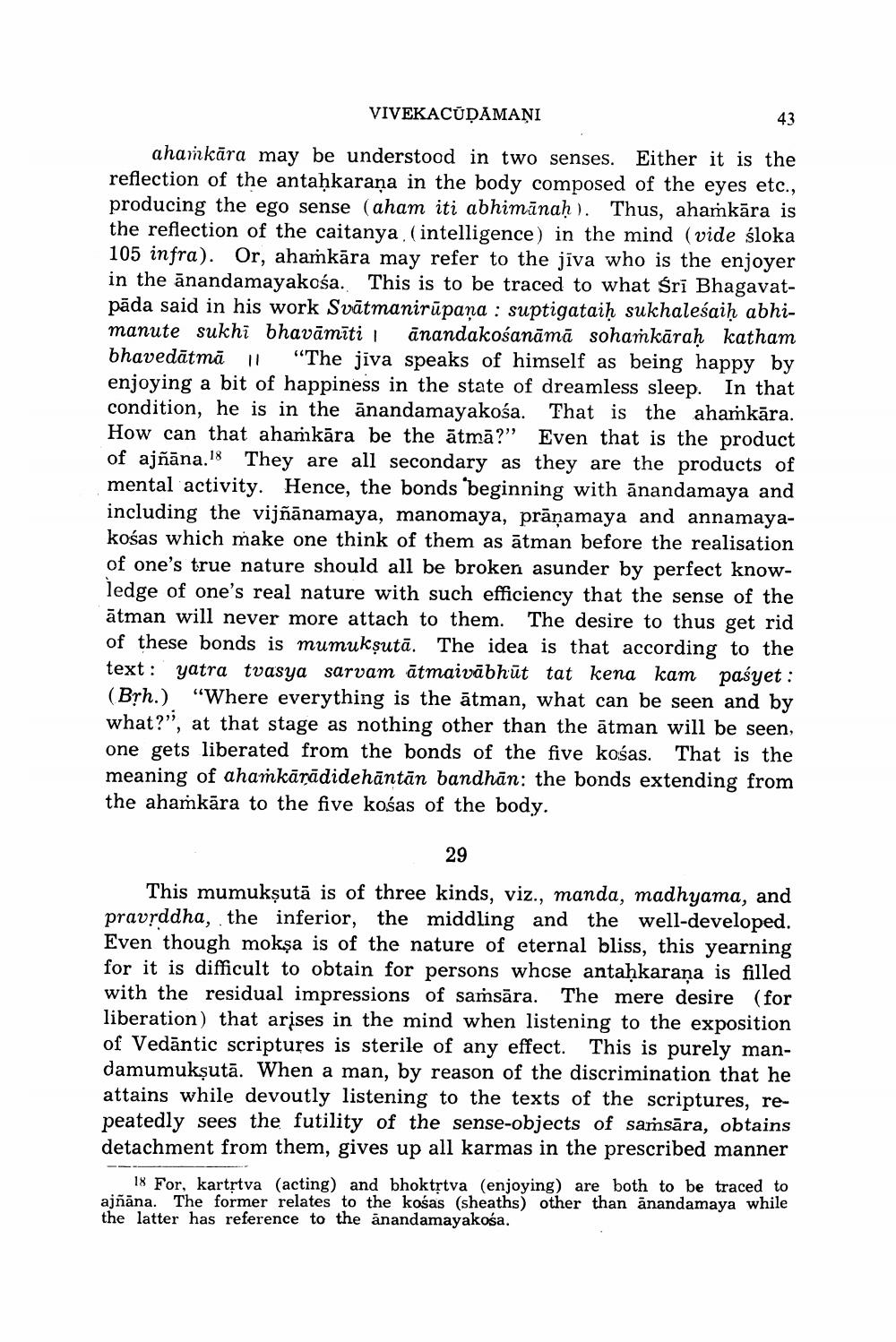________________
VIVEKACŪDAMAŅI
43
ahamkara may be understood in two senses. Either it is the reflection of the antaḥkarana in the body composed of the eyes etc., producing the ego sense (aham iti abhimanaḥ). Thus, ahaṁkāra is the reflection of the caitanya. (intelligence) in the mind (vide śloka 105 infra). Or, ahaṁkāra may refer to the jiva who is the enjoyer in the anandamayakośa. This is to be traced to what Śrī Bhagavatpāda said in his work Svātmanirupaṇa: suptigataiḥ sukhaleśaiḥ abhimanute sukhi bhavāmīti | ānandakośanāmā sohaṁkāraḥ katham bhavedātmā 11 "The jiva speaks of himself as being happy by enjoying a bit of happiness in the state of dreamless sleep. In that condition, he is in the anandamayakośa. That is the ahaṁkāra. How can that ahaṁkāra be the ātmā?" Even that is the product of ajñāna.18 They are all secondary as they are the products of mental activity. Hence, the bonds 'beginning with anandamaya and including the vijñānamaya, manomaya, prāṇamaya and annamayakośas which make one think of them as ātman before the realisation of one's true nature should all be broken asunder by perfect knowledge of one's real nature with such efficiency that the sense of the atman will never more attach to them. The desire to thus get rid of these bonds is mumukṣutā. The idea is that according to the text: yatra tvasya sarvam ātmaivābhūt tat kena kam paśyet: (Brh.) "Where everything is the atman, what can be seen and by what?", at that stage as nothing other than the atman will be seen, one gets liberated from the bonds of the five kosas. That is the meaning of ahamkarādidehäntän bandhan: the bonds extending from the ahaṁkāra to the five kośas of the body.
29
This mumuksuta is of three kinds, viz., manda, madhyama, and pravṛddha, the inferior, the middling and the well-developed. Even though mokṣa is of the nature of eternal bliss, this yearning for it is difficult to obtain for persons whose antaḥkarana is filled with the residual impressions of samsära. The mere desire (for liberation) that arises in the mind when listening to the exposition of Vedantic scriptures is sterile of any effect. This is purely mandamumukṣutā. When a man, by reason of the discrimination that he attains while devoutly listening to the texts of the scriptures, repeatedly sees the futility of the sense-objects of samsāra, obtains detachment from them, gives up all karmas in the prescribed manner
18 For, kartṛtva (acting) and bhoktṛtva (enjoying) are both to be traced to ajñāna. The former relates to the kosas (sheaths) other than anandamaya while the latter has reference to the anandamayakośa.




